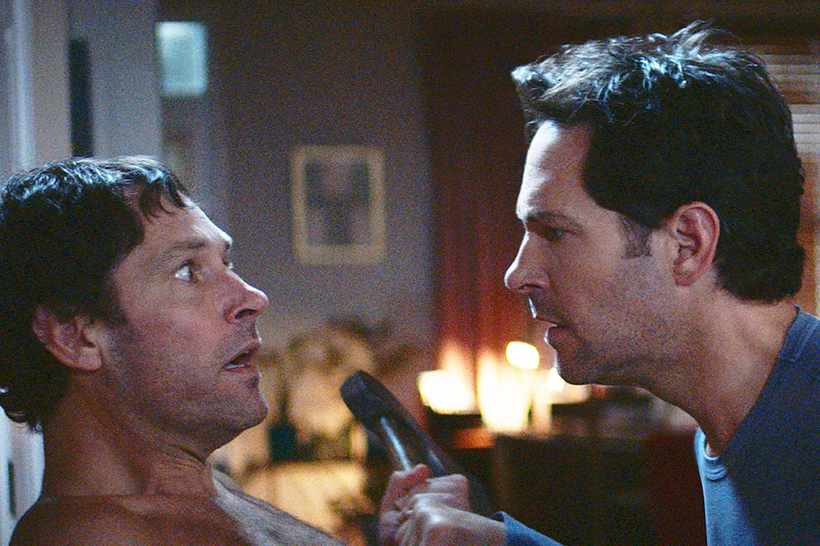Despite the pleasure of having two Paul Rudd’s for the price of one, Timothy Greenberg’s Living with Yourself does little more than add to the ever-growing list of Netflix series which operate perfectly in companionship with the ‘if you loved this then you should try this’ type shows, which struggle to stand up entirely on their own.
Co-directed by Little Miss Sunshine’s Jonathan Dayton and Valerie Faris, Living with Yourself offers a fairly engaging premise. A black-market operation, ‘Top Happy Spa’, has gotten its hands on human cloning capabilities, which it uses to create clones of its customers whose DNA they enhance. The shoddier-DNA-ed originals are then clumsily killed and disposed of in a nearby forest. It is of course Paul Rudd’s character, Miles Elliot, who has the misfortune of surviving this disposal process and is then stuck with a life where two versions of himself exist.
The show seems to follow a recent trend in Netflix shows which present a ‘what if’ scenario that is dealt with and subsequently concluded in one single season. Russian Doll, After Life and Maniac come to mind. Living with Yourself doesn’t quite achieve this singularity however. The season’s climax feels rushed and excuses itself from answering many of our questions. Whilst some story lines are fully fledged out, like the pair of Miles ‘learning to love themselves’, others are altogether abandoned. The ill-equipped FDA agent’s narrative seems to begin and end with no larger purpose, and the threat of Miles’ parent company lingers in the background before vanishing entirely. Although this could be in service of a second season, it’s likelier that Greenberg ran out of time with pressure from Netflix, or simply wrote himself into a corner that he couldn’t get out of.
With that being said, Living with Yourself does have its merits. Rudd, as always, has the capacity to play drama and comedy all in one role whilst maintaining his every-man persona that makes him so likeable. In one instance, the cloned Miles embodies the feet-dragging sunken-eyed original Miles in an effort to not raise suspicion when his wife Kate (here played by comedian Aisling Bea), returns home. It really illuminates Rudd’s ability as we often forget that Mile I and Mile II are played by the same person. The design of the show is also of note; Kelly McGhee spaces all encompass layers of meaning as a room that was once a nursery is used for storage and a credenza that represents the making of a new home is repeatedly marked, moved and finally destroyed. Still, the overall mise-en-scene, especially in the case of Dayton and Farris, lacks a punch. This is probably due to the restrictions of having two Miles put on the production.
Whilst Living with Yourself attempts to explore some interesting themes, such as self-love and forgiveness, and sets up an interesting enough premise, the execution is rushed and feels like something with seen before. Maybe, just maybe, two Paul Rudd’s isn’t quite enough.
Image Credit: Netflix

